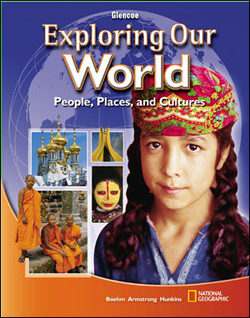
Exploring Our World: People, Places, and CulturesChapter 15: Russia TodayChapter OverviewsAfter throwing off communism, Russia became more democratic. It is now a federal republic, with power divided among national, regional, and local governments. Russians can now vote freely, and they have increased contact with other countries. A Russian middle class has emerged and has sought goods that people had not been able to buy in years. American and European books, television shows, and other products have become more available. Russian leaders have also worked to strengthen ties with the West. However, the recently growing power of the Russian president has placed limits on democracy and worries other countries. In addition, crime and business corruption have grown. In addition, Russia has moved toward a market economy. This change has benefited some Russians while bringing hardship to others. Regions have also benefited differently from the new economy. Moscow is the economic center of Russia. Ports in the St. Petersburg and Baltic regions carry on trade between Russia and other countries. The Volga and Urals region is a center of manufacturing, mining, and farming. Siberia’s great resources are difficult to tap because the area is remote. Very few people live in this region. Russia has uneasy relationships with some of the countries that were once part of the Soviet Union. Some ethnic groups want to separate from Russia and form their own countries. These separatist groups have sometimes used terrorism to try to achieve their goals. Ethnic Russians also returned to Russia when the former Soviet countries became independent. Despite this immigration, Russia’s population has declined because of low birthrates and rising death rates. Poor nutrition, alcoholism, drug abuse, and disease have caused the rise in the death rate. |  |















